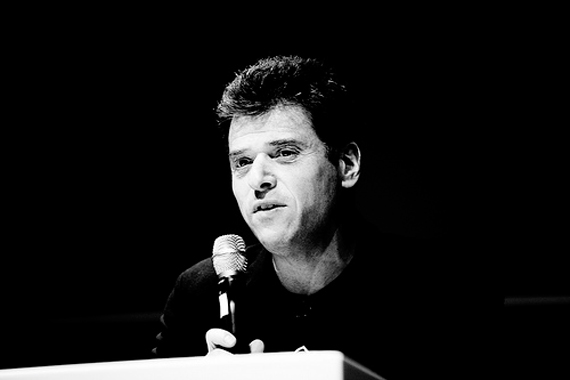The fascinating transformation that the Internet promised at different levels of society -politics, culture or the economy- has not fooled Andrew Keen. A writer and entrepreneur, Keen remains steadfast and questions the scale of the revolution that the Internet has actually brought about. Are the changes as positive and global as we expected? Has the Net consolidated as the ultimate democratizing weapon? Skeptical and critical, Keen is one of the leaders of the digital revolution and the most rebel of Silicon Valley gurus.

Is Web 2.0 a Utopia?
The Internet seemed a safe bet for the economy and culture, with billions of users who could benefit from that global connection. However, according to Andrew Keen, far from being a democratizing force, the Internet has simply made the existing inequality worse.
The more open and egalitarian world that the Net promised is not real. Keen maintains that the Internet is not the economic driving force that we thought. The equation “the larger the number of users, the greater the benefit for society as a whole” is not valid. Are users the victims, or the beneficiaries of the Internet’s global connection?
“Keen’s position should not be understood as one of opposition to the Internet, but as his conscience”.
This is how some critical voices have referred to the author’s position after reading his latest book The Internet Is Not The Answer. A book that should be read by those who, at least, have an email account and, therefore, automatically are part of the inevitable digital transformation. What can we expect from the Internet?
You can download a free chapter from the author’s website by clicking here.
The effects of the “non-revolution”
Instead of contributing value to the economy, the more the Internet is used, the more devaluated it becomes. The author maintains that the Net is widening the gap between rich and poor. The “connected-economy capitalism” is making most of us poorer. Instead of the potential equal opportunities for competing in the global economy, the result of the Internet industry has been to create huge monopolies that control the sector.
And in culture? Has the global hyperconnection expanded our horizons? On the contrary, the author points out the paradox of the age of the selfie, the narcissism and the voyeurism we live in. In his latest book, Keen invites us to overcome the initial fascination with the bubbles of cyberspace and focus on the dysfunctional world we have created with digital tools. We need to reflect.
What’s going wrong on the Internet? This is the big question. The answer can’t only be the lack of government regulation. The Internet has been the most disruptive revolution in history after the industrial revolution. This is why we need a new social contract, with rights and responsibilities, for all the members of the networked economy. Whether we like it or not, the Internet is transforming our society at breakneck speed. And it is clear that not all the consequences will be as positive as we expected.
Comments on this publication